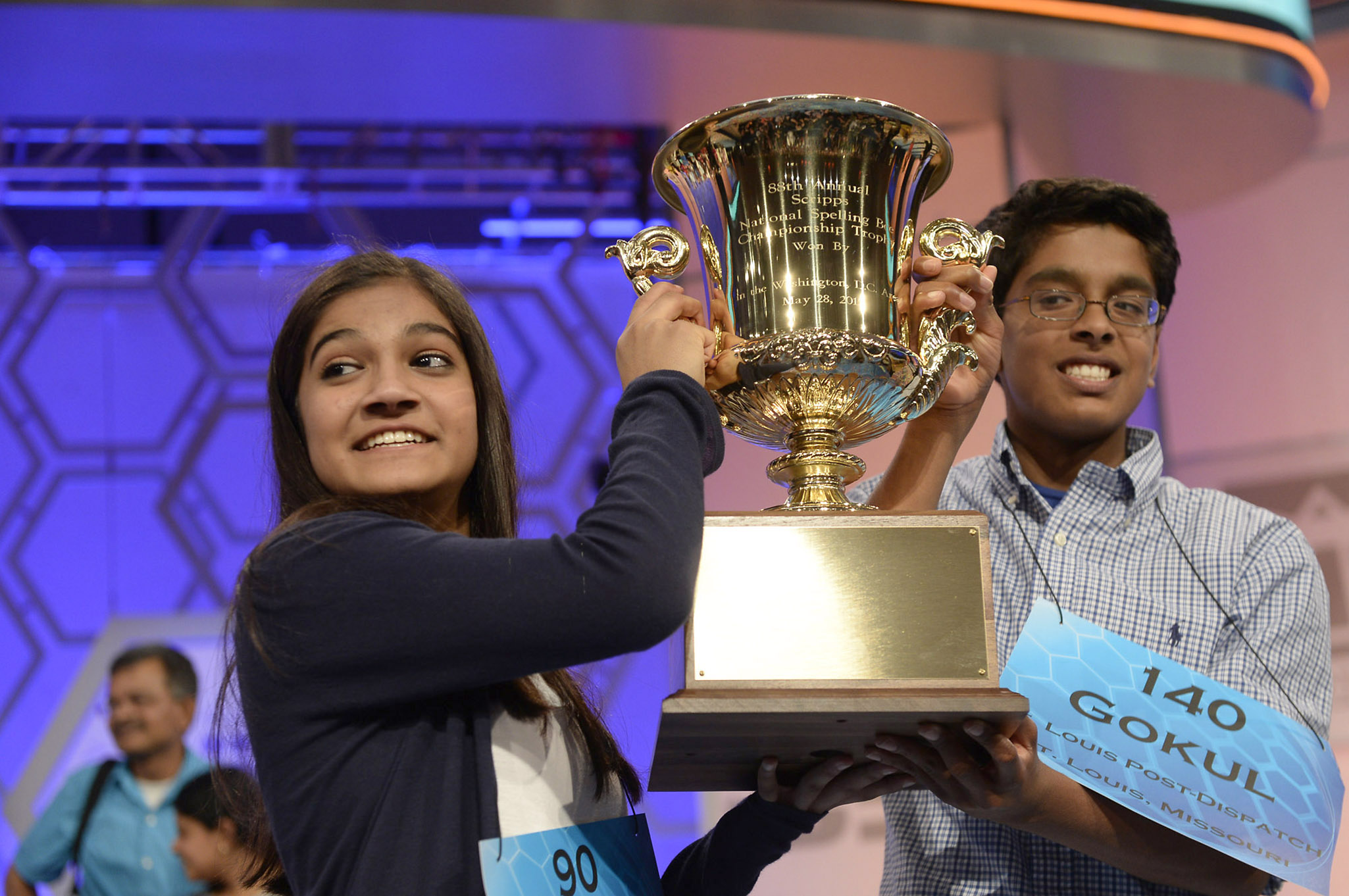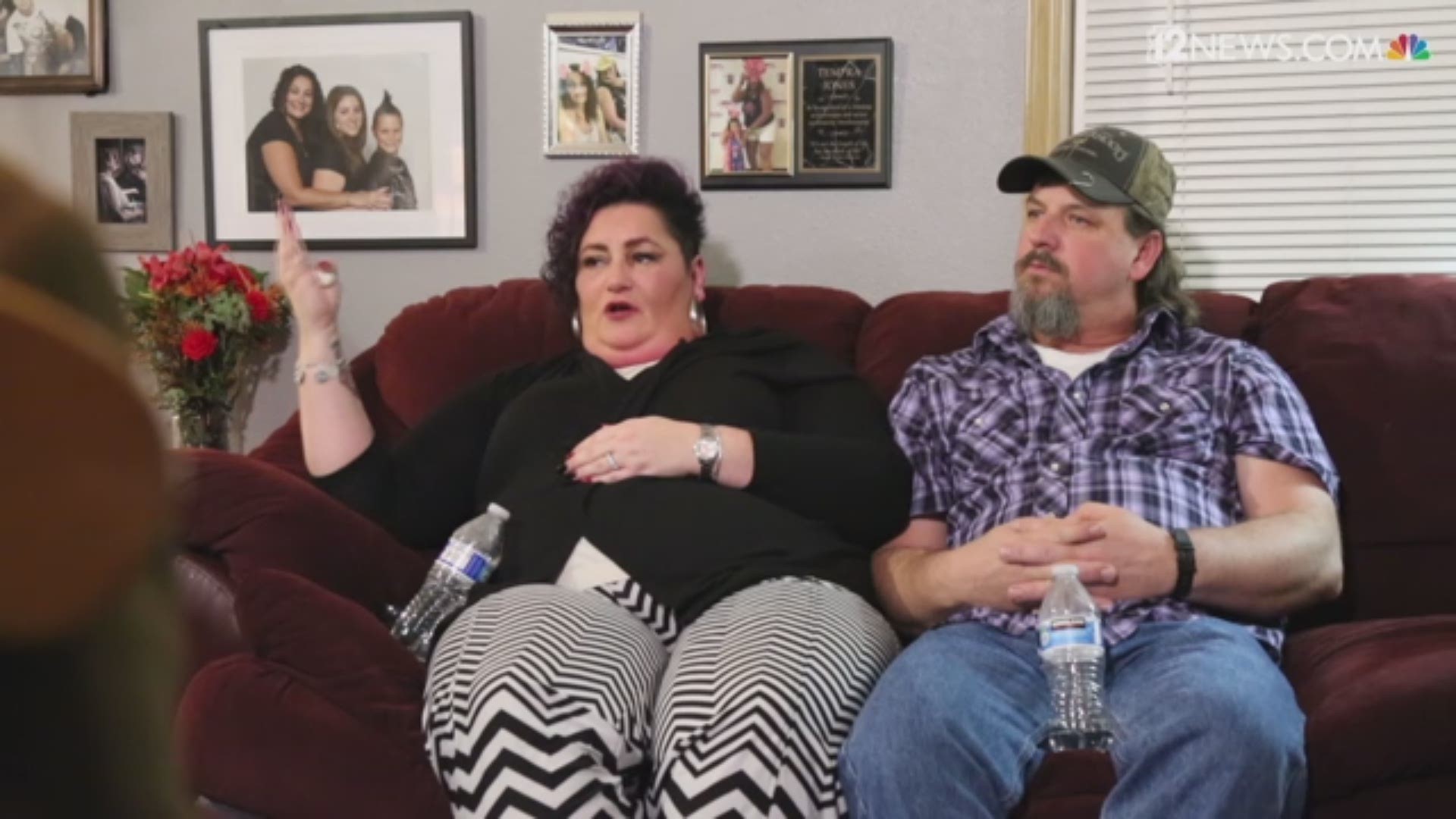![XXX EE_05272015_2015_SPELLING_BEE__27143.JPG A USA MD [image : 28142931]](http://www.gannett-cdn.com/-mm-/b118226524d03f8b6f21fe6def570c815a4cb441/c=307-0-1901-1362/local/-/media/2015/05/29/USATODAY/USATODAY/635684886027620363-XXX-EE-05272015-2015-SPELLING-BEE-27143.jpg)
WASHINGTON — After the last two Scripps National Spelling Bees resulted in tense, error-less perfection and ended with co-champions, participants at this year’s nerd fest will be given a more difficult word list.
The bee changed the rules so the final contestants’ words don’t come from a 25-word list predetermined by spelling officials, Paige Kimble, bee executive director, said Thursday.
Instead, organizers can use an expanded list of words from anywhere in the Webster’s Third New International Dictionary. Kimble calls it “raising the standard.”
The new guidelines aren't intended to eliminate the chance of co-champions, said Kimble, the 1981 national champion. The bee’s organizers listened to a spectrum of opinions from participants, sponsors and fans, and rejected suggestions for a “lightning round” that would guarantee a single winner, she said.
"If one champion fails to emerge at the conclusion of 25 consecutive rounds of competition involving three or fewer spellers, the remaining spellers in the competition will be declared co-champions,” the rule says. Kimble said the higher standard could produce three co-champions, a situation not seen in the history of the bee, which began in 1925.
As in previous years, the organizers can select more difficult words in the earlier rounds if the field isn’t being winnowed fast enough. The rule change won’t necessarily make the nationally televised final rounds next month last longer, Kimble said.
Vanya Shivashankar, 13, of Olathe, Kan., and Gokul Venkatachalam, 14, of Chesterfield, Mo., were last year’s co-champions, battling through 20 rounds in prime time at the Gaylord National Resort and Convention Center south of Washington. Champions have often appeared in the final rounds in previous years. And it's not uncommon for different family members to do well in separate years. Vanya’s sister, Kavya, was champion in 2009.
Students age 6 to 14 come from every state, U.S. territory and a handful of foreign countries where English is spoken. By the time they reach the national stage, they know most of the words thrown at them.
This year there will again be kids spelling with index fingers on the backs of their name tags or in the air, and jokers and jaunty stars seeking as much time in the limelight as the famed pronouncer, Jacques Bailly, will give them.
Does this mean the spelling bee will be more difficult? Kimble won’t say.
“These kids are always surprising us,” she said.
"The bee has a very difficult task because it is very challenging to really grasp the level of preparation of the spellers in any given year,” said last year’s co-champion, Shivashankar. “There have been years that the bee has ended sooner than anticipated and some years it has lasted longer. This year, I do know some of the spellers who competed with me in the past few years are going to be extremely well prepared.”
Co-champion Venkatachalam, addressing the change that expands the list of words in the championship rounds, said: “The judges having more flexibility benefits the spellers because the difficulty of the words can be controlled better. During the end of the spelling bee, a locked list may be too easy for a set of competitors.”
Onstage rounds of this year's spelling bee are May 25 and 26.
Follow Bartholomew Sullivan on Twitter @BSullivanNewsDC


